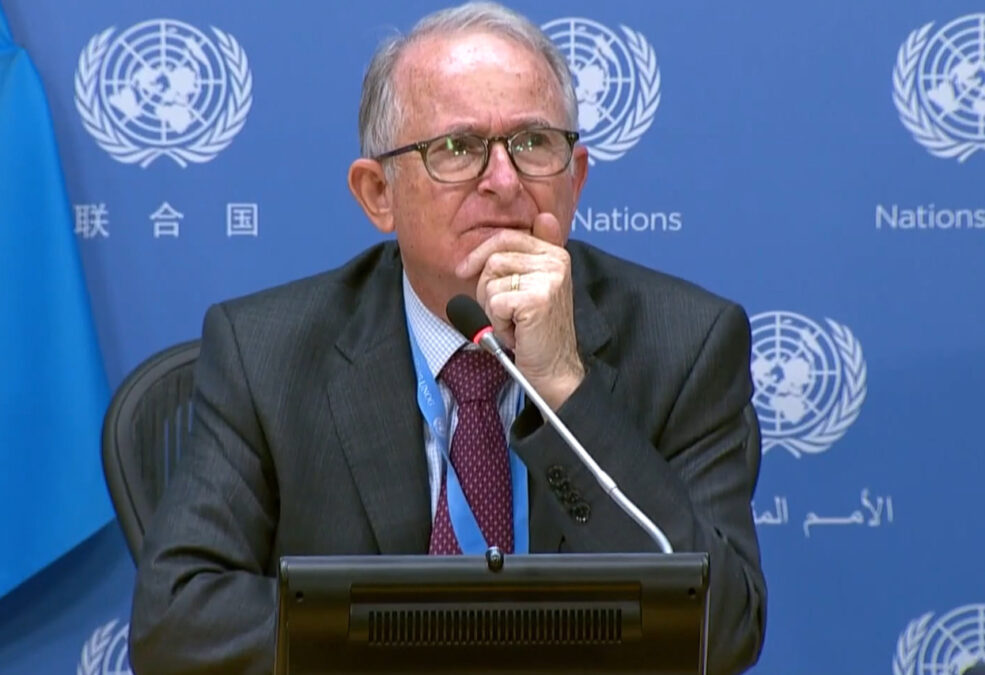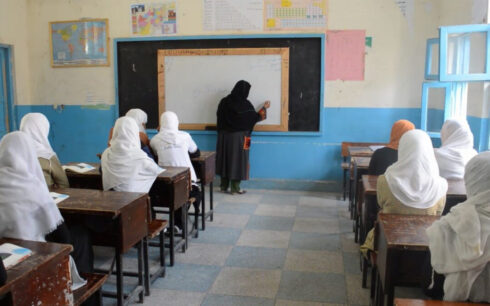The UN Special Rapporteur on the situation of Human Rights in Afghanistan, Richard Bennett, who concluded a 12-day visit in Afghanistan, painted a rather grim picture of the situation of human rights in the country, particularly for women, minorities and media.
Mr Bennett, speaking at a press conference at the UN Headquarters in New York on Wednesday, said that the people of Afghanistan “didn’t expect to be dropped off the cliff 14 months ago” when the Taliban took over the country by force as the US withdrew its last troops.
“Reversal [of women’s rights] is probably unprecedented in history [of Afghanistan], it’s in a way even greater than in 96 [when the Taliban ruled country for the first time],” said Mr Bennett. He added that it was “a huge setback” and “huge repression in the rights of women and girls”.
There are many other restrictions on women and girls, who are excluded largely from employment, from political and public life with limitations on freedom of movement.
According to Mr Bennett, it’s a pattern of “absolute gender segregation aimed at making women invisible in society”.
The UN expert on human rights visited three provinces in Afghanistan, including Kabul, Panjshir and Bamyan during his recent visit which came right after the brutal attack on Kaaj education centre in Kabul that killed 54 young girls and wounded another 114.
The attack on Kaaj was one of the deadliest in Afghanistan in recent months, targeting mostly Hazara Shia minority. 51 of the 54 killed in the attack were young Hazara women who were attending a practice university exam.
“There has been a pattern of discrimination as well as direct attacks on different minorities, on Hazara Shia, on Sufis, Sikhs and Hindus,” said Mr Bennett.
Afghanistan is the only country in the world that schools for secondary education has been closed for girls now for 402 days.
Mr Bennett, however, said that he visited a province [Bamyan] during his last visit that girls were going to secondary school, but the provincial Taliban authorities kept it low profile, highlighting complexities of governance in Afghanistan.
“Also, [there is a] suppression of a population [in Panjshir] from going about their normal life even to the degree of preventing farmers from going to the fields or shepherds from looking after their flocks.
Richard Bennett
The UN Rapporteur’s visit to Panjshir was unprecedented as it’s one of the places where there are many reports of extrajudicial killings of people who engage in armed resistance against the Taliban.
Explaining his visit to Panjshir, Mr Bennett said that “it’s very very tightly controlled militarily” and “there is a media shutdown on Panjshir”.
“It was a different atmosphere from other places I visited,” he added.
“I have met directly with a number of witnesses, and it seemed to me that it’s a serious cause for concern about human rights violations and violation of humanitarian law, including extrajudicial executions.” Mr Bennett added.
“Also, suppression of a population from going about their normal life even to the degree of preventing farmers from going to the fields or shepherds from looking after their flocks.
The Taliban issued an amnesty for all members of the former government, including the security forces when they took power. Mr Bennett said that amnesty was “helpful”, but “it’s certainly not been respected fully”.
The Taliban clampdown on media in Afghanistan is also unprecedented. The Afghan media was not allowed to cover the Kaaj incident as they the Taliban prevented them from reaching the area of the attack and visiting the hospitals where the victims had been taken. The UN human rights rapporteur, therefore, asked the international media to pay more attention to the situation of Afghanistan.
There were only two journalists who attended, in person, his press conference in New York.





